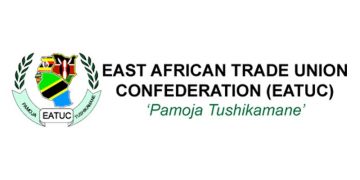Gender Strategy
EATUC Strategy Development Forum on Regional Trade union Gender Mainstreaming
21st – 22nd June 2011 at Olive Gardens Hotel, Nairobi
<= Click to Download: 21/06/2011
GENDER STRATEGIC PAPER: MOVING TOWARDS PROMOTING GENDER EQUITY AND INFLUENCING OUTCOMES
EXECUTIVE SUMMARY
‘Gender’ refers to the socially constructed rather than biologically determined roles of men and women as well as the relationships between them in a given society at a specific time and place. These roles and relationships are not fixed, but can and do change.
The United Nations Economic and Social Council in 1997 defined gender mainstreaming as ‘a strategy for making women’s as well as men’s concerns and experiences an integral dimension of the design, implementation, monitoring and evaluation of the policies and programmes in all political, economic and societal spheres so that women and men benefit equally and inequality is not perpetuated’.
According to a United Nations Development Programme (UNDP) report on gender mainstreaming, the needs and priorities of half of humankind have yet to make it to the forefront of the development agenda.
Of the world’s 1 billion poorest people, three fifths are women and girls. Of the 960 million adults in the world who cannot read, two thirds are women. Seventy percent of the 130 million children who are not enrolled in school are girls. And with notable exceptions, such as Rwanda and the Nordic countries, women are conspicuously absent from parliaments, making up, on average, only 16 percent of parliamentarians worldwide.
Women everywhere typically earn less than men, both because they are concentrated in low-paying jobs and because they earn less for the same work.
Although women provide about 70 percent of the unpaid time spent caring for family members, that contribution to the global economy remains invisible. Up to half of all adult women have experienced violence at the hands of their intimate partners. Systematic sexual violence against women has characterized almost all recent armed conflicts and is used as a tool of terror and ‘ethnic cleansing’. Moreover, women and girls are frequent victims of rape in refugee camps.
In sub-Saharan Africa, 57 percent of those living with HIV are women, and young women aged 15-24 are at least three times more likely to be infected than men of the same age. Half a million women die and at least 9 million more suffer serious injuries or disabilities from preventable complications of pregnancy and childbirth.
Goal Three of the MDG specifically refers to promoting gender equality and the empowerment of women. EATUC acknowledges the fact that all of the eight MDGs have a gender dimension that cuts across.
Some include gender along with other crosscutting issues such as the environment, HIV and AIDS, good governance, and human rights. There is therefore a strong need for gender analysis and research in planning, design and implementation of all trade union programs and projects.
In order to properly mainstream gender in our daily work, we must focus less on providing equal treatment to men and women (since equal treatment does not necessarily result in equal outcomes), and more on taking whatever steps are necessary to ensure equal outcomes.
The empowerment of women can only be achieved by taking into account the relationships between men and women. It is absolutely necessary to work with like-minded partners to mobilize resources, incorporate gender budgeting into our work and develop good performance indicators for monitoring progress of measures to promote gender equality.
More detailed on Download above



